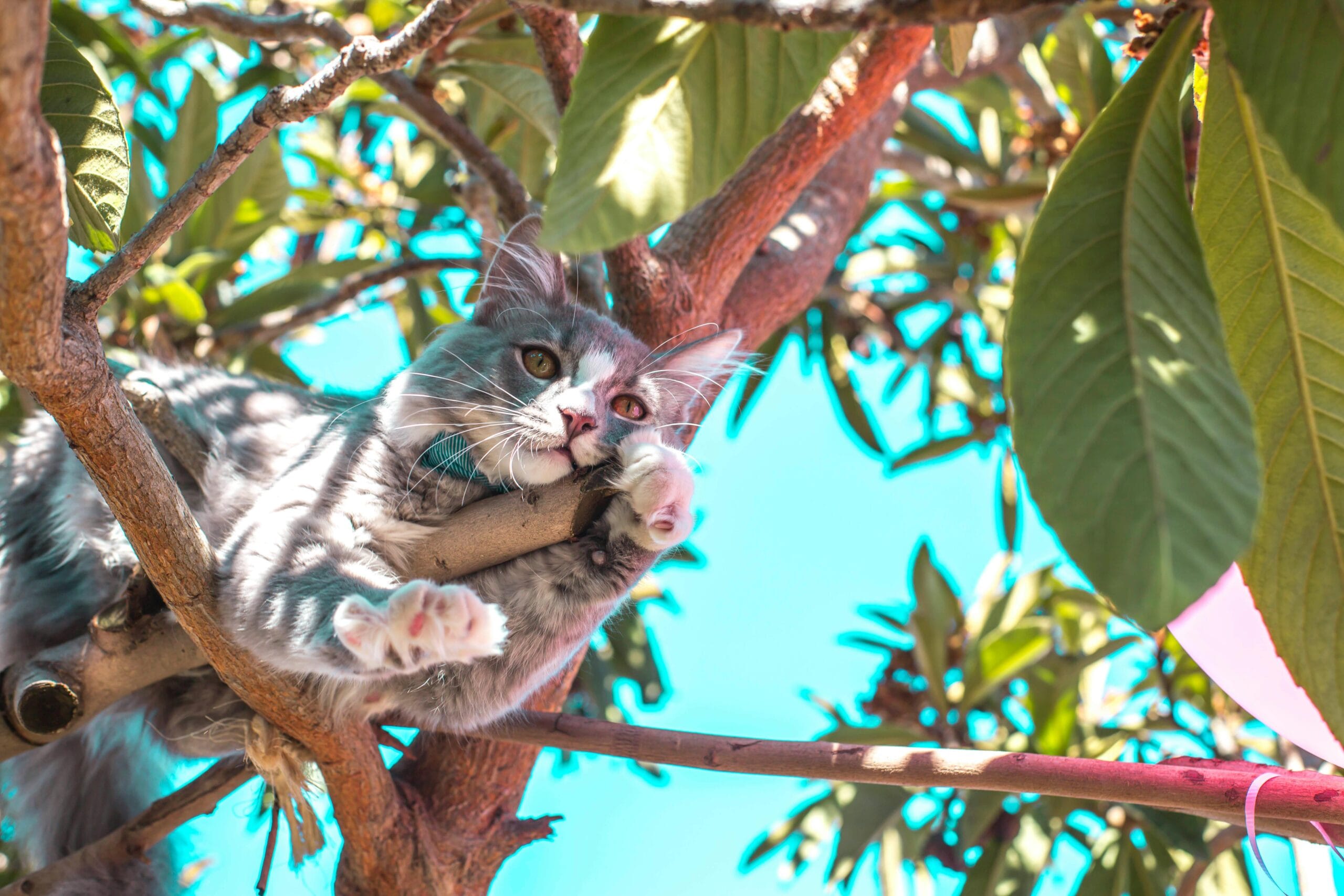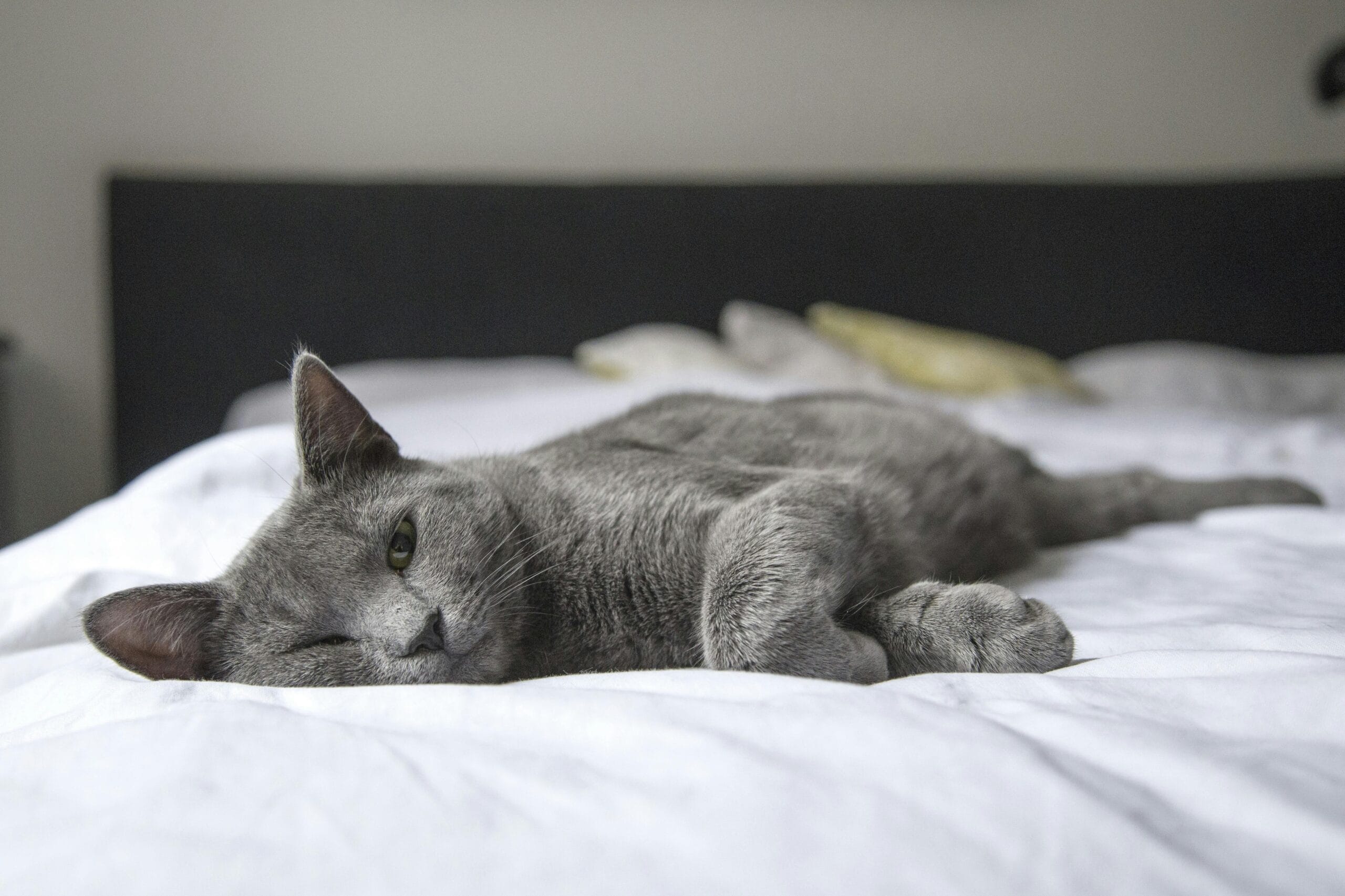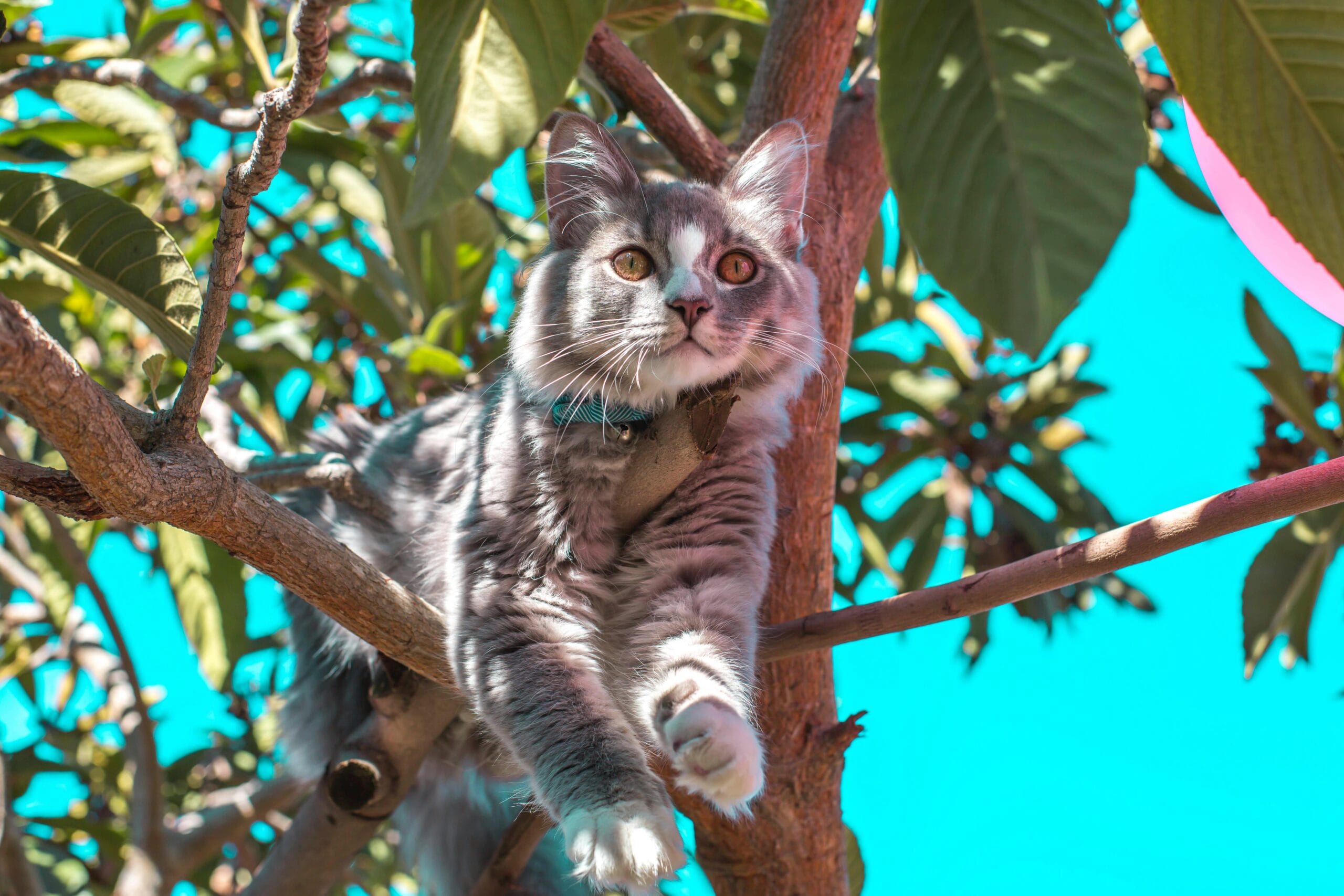Can Cats Eat Bacon? Is bacon bad for cats? Find out the truth about cats and bacon! Discover the potential risks and learn how to keep your feline friend safe. Read now for expert advice!
Can Cats Eat Bacon? A Comprehensive Guide to Feline and Fatty Foods
The irresistible aroma of crispy bacon is enough to tempt anyone, even our feline friends. But can cats eat bacon? The short answer is a resounding no. While your cat might show interest, giving them bacon can lead to serious health problems. This article dives deep into why bacon is harmful to cats, exploring the risks involved and offering safer alternatives to satisfy your kitty’s cravings.
Is Bacon Bad for Cats? Understanding the Risks
Is bacon bad for cats? Yes, it is. Bacon, like other cured meats, is incredibly high in fat and sodium. These two components pose significant dangers to a cat’s health. Let’s break down the specific risks:
High Fat Content: A Recipe for Pancreatitis and Obesity
The high fat content in bacon can lead to pancreatitis, a severe inflammation of the pancreas. This condition can be life-threatening for cats and requires immediate veterinary attention. Furthermore, excessive fat intake contributes to obesity, which can lead to a cascade of health issues, including diabetes, heart disease, and joint problems. Remember, maintaining a healthy weight is crucial for your cat’s overall well-being, much like choosing healthy options for yourself. For example, considering the dangers of giving your cat something like grapes, as explained in this helpful article: Can Cats Eat Grapes?
High Sodium Levels: A Strain on the Kidneys
Bacon is notoriously high in sodium. Cats, unlike humans, have a lower tolerance for sodium. Excessive sodium intake can strain their kidneys, potentially leading to kidney disease in the long term. This is especially dangerous for senior cats or cats with pre-existing kidney conditions. Just as we must be mindful of what we feed our children, we need to pay even more attention to the dietary choices for our cats.
Potential for Bacterial Contamination
Uncooked or improperly cooked bacon can harbor harmful bacteria like Salmonella and E. coli. These bacteria can cause severe gastrointestinal upset in cats, leading to vomiting, diarrhea, and even more serious complications. Always prioritize food safety for your cat, just as you would for your family. You might find this helpful guide on another food group similar to bacon that you might be thinking of feeding your cat, Can Cats Eat Sardines?.
Cats and Bacon: Alternatives for Satisfying Your Kitty’s Curiosity
While bacon is off the menu, there are many delicious and safe alternatives to satisfy your cat’s curiosity and treat them occasionally. Always consult with your veterinarian before introducing any new foods into your cat’s diet, particularly if they have pre-existing health conditions.
Healthy Cat Treats and Snacks
Commercial cat treats specifically formulated for feline nutrition are a much safer option. Look for treats low in fat and sodium, and check the ingredient list carefully to avoid artificial additives. Always prioritize food quality and safety.
Homemade Cat Treats
If you’re feeling creative, you can also make your own healthy cat treats using cat-friendly ingredients like cooked chicken or fish (always ensure it’s cooked thoroughly), and small amounts of pureed vegetables. Remember to avoid any foods toxic to cats, such as onions, garlic, chocolate, and grapes, as detailed in Can Cats Have Cherries? and Can Cats Eat Grapes?.
Playing and Interacting
Sometimes, cats simply want attention. Instead of food, try engaging your cat in playtime with interactive toys or a good cuddle session. This can help them burn energy and improve your bond. They might appreciate this just as much as a snack, and it’s healthier too.
The Dangers of Feeding Cats Human Food
It’s crucial to remember that many human foods are toxic or harmful to cats. This includes items like chocolate, onions, garlic, grapes, raisins, and xylitol (a sugar substitute). Even seemingly harmless foods like lettuce (as discussed at Can Cats Have Lettuce?) should be given in moderation, if at all. Always consult a reputable source for information on cat-friendly foods.
A helpful resource you can use to consult is the ASPCA’s Animal Poison Control Center: ASPCA Animal Poison Control Center. This is a valuable resource in case of accidental ingestion of toxic substances by your pet.
Another important aspect is understanding the nutritional needs of your cat. Dairy products like almond milk, while seemingly harmless, might not be ideal for cats. You can read more in detail in this article: Can Cats Have Almond Milk?
Long-Term Effects of Bacon Consumption in Cats
The consequences of regularly feeding your cat bacon extend far beyond an upset stomach. Long-term consumption can lead to chronic health issues, significantly reducing your cat’s lifespan and quality of life. These problems can be costly to treat, both financially and emotionally.
A study published in the Journal of Veterinary Internal Medicine found a direct correlation between high-fat diets and the incidence of pancreatitis in cats. You can find more research on this topic from the veterinary research databases.
Frequently Asked Questions (FAQs)
Can a little bit of bacon harm my cat?
Even a small amount of bacon can contain enough fat and sodium to cause harm. It’s best to avoid giving your cat any bacon at all.
My cat ate bacon, what should I do?
Monitor your cat closely for signs of vomiting, diarrhea, or lethargy. If you notice any concerning symptoms, contact your veterinarian immediately.
Are there any types of bacon that are safer for cats?
No, all types of bacon pose health risks to cats due to their high fat and sodium content.
For more information on feline nutrition and safe food choices, consult your veterinarian or a veterinary nutritionist. They can provide personalized advice based on your cat’s age, breed, and overall health.
We hope this comprehensive guide has answered your questions about can cats eat bacon and highlighted the importance of providing your feline companion with a balanced and healthy diet. Remember, a healthy diet is crucial for a long and happy life for your beloved pet. Understanding the dangers associated with Cats and Bacon is essential for responsible pet ownership.
Have you ever had an experience with your cat and bacon? Share your story in the comments below! Let’s discuss your thoughts on safe food choices for our feline friends and how to prevent harmful situations. Share your tips and tricks, and contribute to the community!

Frequently Asked Questions: Can Cats Eat Bacon?
- Can cats eat bacon?
- No, cats should not eat bacon. While a tiny bite might not cause immediate harm, it’s best to avoid it entirely. See below for details on why.
- Is bacon bad for cats?
- Yes, bacon is bad for cats. It’s high in fat and salt, both of which can lead to pancreatitis (inflammation of the pancreas), obesity, and other health problems. The high sodium content can also cause dehydration and kidney issues. Therefore, avoid giving your cat bacon. Read more about what cats can and cannot eat.
- Why is bacon dangerous for cats?
- Bacon’s high fat content can cause pancreatitis, a serious and potentially fatal condition. The salt content contributes to dehydration, heart problems, and kidney issues. The cooking process can also add harmful chemicals. This makes it a risky food for your feline friend. Is Bacon Bad for Cats? Yes, definitely.
- What happens if my cat eats bacon?
- A small amount might cause mild digestive upset (vomiting, diarrhea). However, larger amounts can lead to pancreatitis, which requires veterinary care. Monitor your cat closely and contact your vet if you suspect they’ve ingested a significant amount of bacon.
- My cat stole a piece of bacon. Should I be worried?
- Monitor your cat for any signs of vomiting, diarrhea, lethargy, or loss of appetite. If you see any of these symptoms, contact your veterinarian immediately. A small piece might not cause problems, but it’s best to be cautious.
- Are there any bacon alternatives for cats?
- Absolutely! Cats should only eat food formulated for them. Treats specifically designed for cats are available at pet stores and online.
- Can a little bacon hurt my cat?
- Even a little bacon carries risks due to its high fat and salt content. While a tiny amount might not cause immediate harm, it’s best to prevent your cat from accessing it entirely to avoid potential health issues. Remember, prevention is better than cure.
- Cats and bacon: what’s the problem?
- Cats and bacon is a bad combination! Bacon’s high fat, salt, and potential for added chemicals make it an unhealthy and potentially dangerous food for cats. Stick to cat-safe foods and treats.
- How can I prevent my cat from eating bacon?
- Keep bacon out of reach. Proper food storage is crucial. Train your cat with positive reinforcement not to jump on counters or tables where bacon might be stored.
- Is cooked bacon safer than raw bacon for cats?
- No, cooked bacon is not safer than raw bacon for cats. Both carry the same risks of high fat and salt content. Cooking may also add other harmful chemicals, making it even less desirable for feline consumption.

Can Cats Eat Bacon? A Vet’s Perspective
The short answer is: no, cats should not eat bacon. While the enticing aroma might tempt you to share a crispy strip with your feline friend, bacon presents several health risks for cats.
Bacon is incredibly high in fat, particularly saturated fat. A diet rich in saturated fat can lead to pancreatitis in cats, a severe and potentially life-threatening inflammation of the pancreas. This condition requires immediate veterinary attention and can result in expensive treatment. Even small amounts of bacon can contribute to weight gain, which in turn increases the risk of other health problems like diabetes and joint issues.
Furthermore, bacon is often processed and preserved with high levels of salt and sodium. Excessive sodium intake can lead to dehydration and electrolyte imbalances in cats. These imbalances can cause vomiting, diarrhea, and more serious complications. Similarly, the high levels of salt can put a strain on their kidneys, especially in older cats or those with pre-existing kidney conditions.
Many pet owners wonder about other human foods. For example, you might be curious about whether cats can eat sardines, a much healthier option than bacon. The high fat content is still something to consider, but sardines can offer some nutritional benefits if fed sparingly. Always remember to consult your vet before introducing new foods into your cat’s diet.
Bacon also contains nitrates and nitrites, which are used as preservatives. While the effects on cats aren’t as clearly defined as in dogs, it’s best to err on the side of caution and avoid introducing these chemicals into your cat’s system. The same principle applies to other potentially harmful foods, such as grapes or cherries, which are toxic to cats.
Instead of bacon, consider offering your cat healthy alternatives. A balanced commercial cat food provides all the essential nutrients they need. You can also give them occasional treats, such as cooked chicken or small amounts of fish (boneless and skinless). If you are considering alternatives for milk, you might be researching whether cats can have almond milk or other types of milk. However, just like with bacon, always prioritize your cat’s health and only give them vet-approved treats.
In conclusion, while the smell of bacon might be tempting, it’s crucial to prioritize your cat’s health and well-being. Avoid feeding your cat bacon and opt for safe, nutritious alternatives. If you’re ever unsure about a particular food, consult your veterinarian for personalized advice. For other human food queries, you might be interested in exploring if cats can have lettuce, which is generally safer than bacon, but still should be given in moderation.

Can Cats Eat Bacon, Is Bacon Bad for Cats, Cats and Bacon